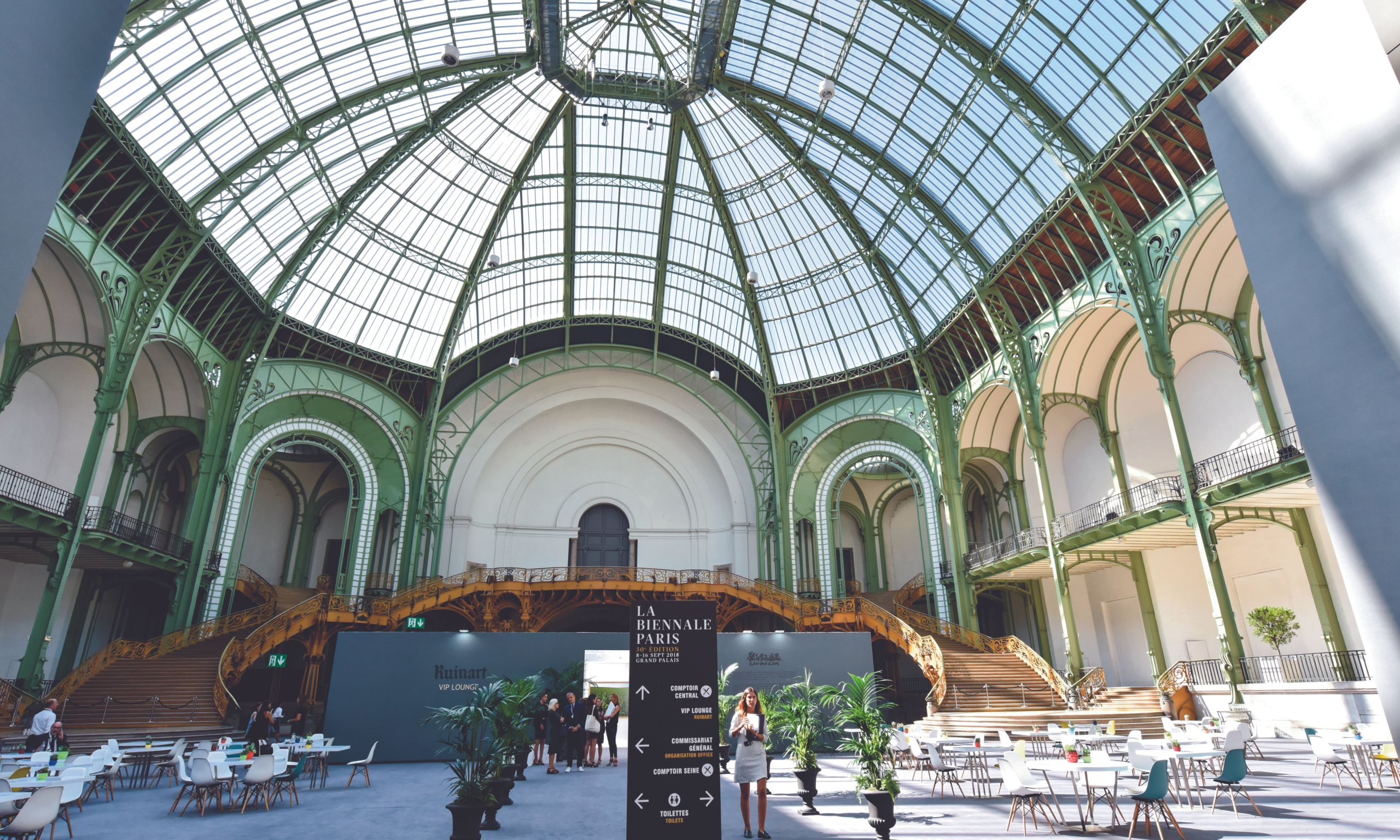Paris’s Biennale des Antiquaires ceased to operate in 2021, in part due to the reputational damage to three of the fair’s stalwart galleries, which were associated with scandal-hit Jean Lupu, Laurent Kramer and Bill Pallot
Courtesy of Daniel Pier/Nurphoto
For years, Jean Lupu was one of the stars of Paris’s Biennale des Antiquaires, the long-running French art fair that was laid to rest in 2021.
The antiques dealer’s elegant gallery was located on the Faubourg Saint Honoré opposite the Élysée presidential palace. But in the basement workshop beneath his elegant showroom, ordinary pieces of furniture were allegedly being transformed into 17th- and 18th-century royal cabinets, desks and dressers, embellished with marquetry, gilt bronze, lacquer and china plaques. So claimed the prosecution during the opening of Lupu’s trial in the Paris criminal court on 12 June, where he is facing charges of commercial fraud and money laundering.
Now aged 93 and retired, Lupu did not show up for the court hearing. Nor did his wife, Monique, 92. Both stand accused of having transferred more than €6m in illicit profits through bank accounts in Switzerland to those in Panama and Qatar, with the help of a relative who, Jean Lupu says, “stole” more than €4m from six accounts they had opened in Qatar.
At the opening of the trial, Lupu’s lawyer Antoine Vey said that his client, whose health had “suddenly declined”, was unable to attend and that his wife Monique was too “stressed” to be present. The court then ordered a medical examination of the couple and subsequently decided to delay the six-day hearing to February 2024.
Therefore, the French trade associations the Compagnie Nationale des Experts, which expelled Lupu, and the Syndicat National des Antiquaires (SNA)—both civil parties in the case along with dozens of victims—must wait another eight months for the trial to take place.
Proceedings against Lupu began eight years ago, in 2015, after another (anonymous) French antiques dealer who was engaged in a financial dispute with him reported Lupu’s practices to the art traffic police.
Now, the prosecution claims that Lupu “has been a forger all his life”. But he says he has only ever “restored antique furniture to highlight them or to return them to their original state”. Vey also questions: “What distinguishes a restoration from a fraud?”
Jean Lupu, now aged 93, is accused of fraud and money laundering
Photo: DR
But the indictment provides damning details of Lupu’s activity. According to the lawsuit, he made millions of euros on sales of 19th-century furniture that he would buy for less than €50,000, before he “completely transformed” and embellished them with “fake signatures”. Thirty-three stamping tools bearing the signatures of famous cabinet makers were seized from Lupu’s home by French authorities; craftsmen working for him also reported their suspicions to the investigators.
Lupu’s wares were sold through his gallery or at auctions in Paris, London, Zurich, Geneva and New York. Among his most prominent clients were the Swiss collector Jean-Claude Gandur and Teodorin Obiang Nguema, the son of the president of Equatorial Guinea, whose furniture was seized by the French Justice department when he was found guilty of embezzlement in 2020. A commode, bearing a stamp for the French cabinet-maker Charles Cressent and bought by Obiang for €2.8m from Lupu’s gallery, was sold for less than €200,000 by the seized property agency at Drouot in Paris last January, described as an imitation “in the style of Cressent”. Meanwhile, a desk bought for €2.7m by Obiang as an André-Charles Boulle, the most famous cabinet-maker of Louis XIV’s reign, barely reached €50,000.
Lupu’s trial has been seen as the first positive step following years of successive scandals that have dealt a huge blow to the Parisian antiques trade.
Other similar criminal cases involve Laurent Kraemer of the prestigious Galerie Kraemer, founded in Paris in 1875, and Bill Pallot, a former expert at Galerie Didier Aaron, both of whom were arrested in 2016 on suspicion of selling fake Louis XVI chairs to the Palace of Versailles. The Kraemer family denies any wrongdoing, but Pallot confessed that he had made fake chairs sold both to Versailles (for a total of €2.7m) and collectors such as Sheikh Hamad Bin Abdullah al Thani, the cousin of the Emir of Qatar. Both galleries had to withdraw from exhibiting at the Biennale des Antiquaires; subsequently, the event—once the most prestigious antiques fair in the world—went into decline before its eventual demise.

